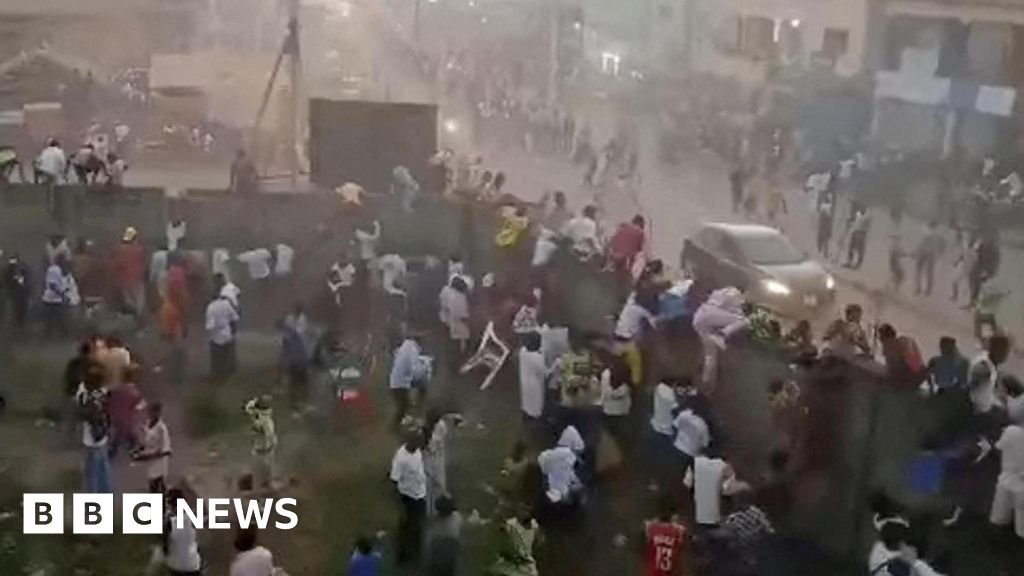Justice Minister Yaya Kairaba Kaba said he had ordered a judicial investigation into the alleged perpetrators.
He said anyone spreading “unverified or malicious information” would be arrested and prosecuted.
The deadly incident followed a controversial refereeing decision during the match that led to violence.
Police fired tear gas as people tried to escape.
But human rights groups blamed the deaths on the organizers of the game and Guinea’s ruling military junta, which held the tournament in honor of President Mamadi Doumboui.
A collective of human rights groups in Nzerekore said there was excessive use of tear gas in the closed area, adding that vehicles carrying officials leaving the stadium also hit civilians trying to escape.
Prime Minister Mamadou Uri Ba declared three days of national mourning for the victims on Tuesday.
Government spokesman Ousmane Ghawal told the local Guineanews website that the country “is in mourning and we must respect the mourning of Guinea and the families”, when asked about the number of victims.
“The government announces preliminary numbers, and someone calls other numbers, what is the contradiction here? We did not say that these are the final numbers,” he was quoted as saying.
Earlier, a local journalist in Nzerekore told the BBC that the stadium was “packed to the brim” with thousands of people before the fatal incident.
Paul Sakuwogi said the stadium had “only one exit… which was very small” where there was a stampede as people tried to escape.
Guinea is among several African countries currently banned from hosting international football matches for not meeting international standards.
The Confederation of African Football (CAF) bans from such matches, including Ethiopia, Gambia, Chad and Sierra Leone.

